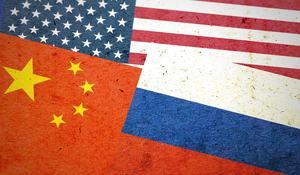Stabilizing Great Power Rivalries

Speaker(s): Mazarr, M. (RAND); Charap, S. (RAND)
Date: 2 March 2022
Speaker Session Summary
SMA hosted a speaker session with Dr. Michael Mazarr (RAND) and Dr. Samuel Charap (RAND) as part of its SMA EUCOM/INDOPACOM Speaker Series.
Ensuring stability between geopolitical rivals can strengthen overall international security and deescalate potentially world-changing conflicts. For a rivalry to be stable, both actors must be able to absorb shocks and stress. Dr. Mazarr commented that today there is more potential for destabilization between states than ever before, more even then during the Cold War. Looking back at historical lessons—especially the Cold War—nuclear deterrence is a key stabilizing factor between states. Dr. Mazarr and Dr. Charap discussed many different indicators of stable relationships between rival states; however, they emphasized that actors’ mutual acceptance of a shared status quo and a resilient equilibrium are strong characteristics of a stable rivalry.
The US-China relationship has both indicators of a stable rivalry and of destabilization. Dr. Charap commented that the paper was written and published long before the current Ukraine-Russia conflict. However, the paper shows that most characteristics of US-Russia policy were more indicative of a destabilizing rivalry than a stable one. The primary findings from the paper include: a) the US should limit threatening signals that could trigger and existential crisis, b) consider the unintended effects of military capability decisions, c) and seek opportunities for transparency and arms control. Dr. Charap emphasized that there were many warning signs of Russia’s invasion into the Ukraine. If these signs were taken seriously, then the conflict may have been avoided. The US should attempt to re-establish formal deconfliction mechanisms to avoid further conflict.
Comments